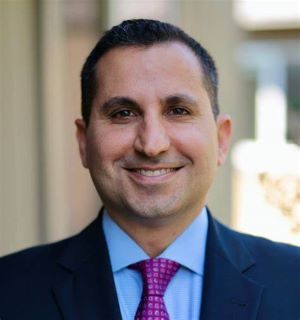Steven Kalogeras is a senior attorney with Maier Pfeffer Kim Geary & Cohen LLP, a boutique law firm in Oakland, California, that specializes in representing Native American Tribes in California.

He has represented clients in complex litigations as well as transactional and governmental policy matters, including tribal governance and economic development, commercial contracts and civil litigation.
During 2021-2022, he served as tribal attorney for the federally recognized Hoopa Valley Tribe located in Hoopa, California.
Prior to building expertise in Federal Indian Law and tribal governance, he spent more than a decade in private practice litigating high-tech intellectual property disputes and negotiating and drafting a wide range of commercial agreements.
In 2023, he earned an LL.M. degree in Indigenous Peoples Law from University of Oklahoma College of Law.
Below is an excerpt from a recent interview as he shares his experience with OU Law’s LL.M. online program.
What is it like doing an LL.M. program online?
The OU Law program in Indigenous Peoples Law was a very good combination of individual study and group discussions.
Each week, I watched recorded lectures and did the assigned reading on my own schedule, with a short written assignment due at the end of the week addressing specific topics in that week’s readings and lecturers.
The written assignment was posted on a group discussion board, and students would respond to each other’s posts in discussion threads attached to each post.
A couple times each trimester the professors would hold Zoom meetings to facilitate direct discussion, with course facilitators being available regularly for additional Zoom meetings.
At the end of each course there was a more traditional exam consisting of multiple-choice questions and essays.
The program was designed to span 1.5 years, including over the summer, which lessened the number of courses taken each term compared to a traditional full-time LL.M. program.
This type of schedule meant I did not have to be a full-time student.
Why did you choose an online LL.M. route versus in-person?
I chose an online LL.M. because I was already in my 40s with an established career and family in California and did not want to uproot all of that by moving to Oklahoma.
I had some concerns about an online program given that all my prior education was fully in-person but was willing to take the plunge with assurances from OU Law that there would be opportunities for direct interaction with classmates and faculty, which was the case.
I enrolled right in the middle of the pandemic so that made me much more open to an online program than I otherwise would have been.
Thoughts about your experience? Pros and cons?
One of the great things about an online program, especially one that is more like a part-time LL.M., is that it allows a much broader range of students to enroll.
The class included lots of working professionals, individuals from every corner of the country and individuals young and not-so-young from every stage of life. This kind of diversity was a great asset to the program by enriching class discussions and increasing how much students were able to learn from one another. But this kind of diversity would not have been achievable if students had to be full-time, in-person students.
Another great aspect was the flexibility to watch weekly course lectures on my own schedule during the week. As someone with a job and other life responsibilities, that was critical.
Advice to anyone considering an online LL.M.?
In today’s day and age, doing an online LL.M. (versus in person) is a no-brainer for many people.
The quality of video communications and screensharing, together with the enormous flexibility it provides students, means you can have an excellent educational experience without having to move across the country or quit your job.
However, I would not recommend doing an online LL.M. simultaneously with a highly demanding job.
If you can work for yourself, work part time or have a modified schedule (e.g., take off every Friday), it will make the LL.M. experience much more enjoyable and less harried.
It is critical to have significant chunks of time during the week when you can focus on schoolwork. If not, I would seriously consider taking a year off to complete the LL.M. full time.
What are you doing now for work? How has your LL.M. helped?
I am now a senior attorney at a law firm in California that specializes in representing Indian Tribes. I feel very fortunate that every day I am applying things that I learned in the LL.M. program.
Enrolling in an LL.M. program is particularly beneficial for attorneys who want to practice in a highly specialized and complicated area of law. Federal Indian Law fit that description for me.
Rather than spend 5 to 10 years trying to slowly build knowledge in a new specialty through on-the-job training, I was able to significantly accelerate that learning curve.
For more personal accounts of online LL.M. programs, read the article in the 2025 Spring issue of The National Jurist.

